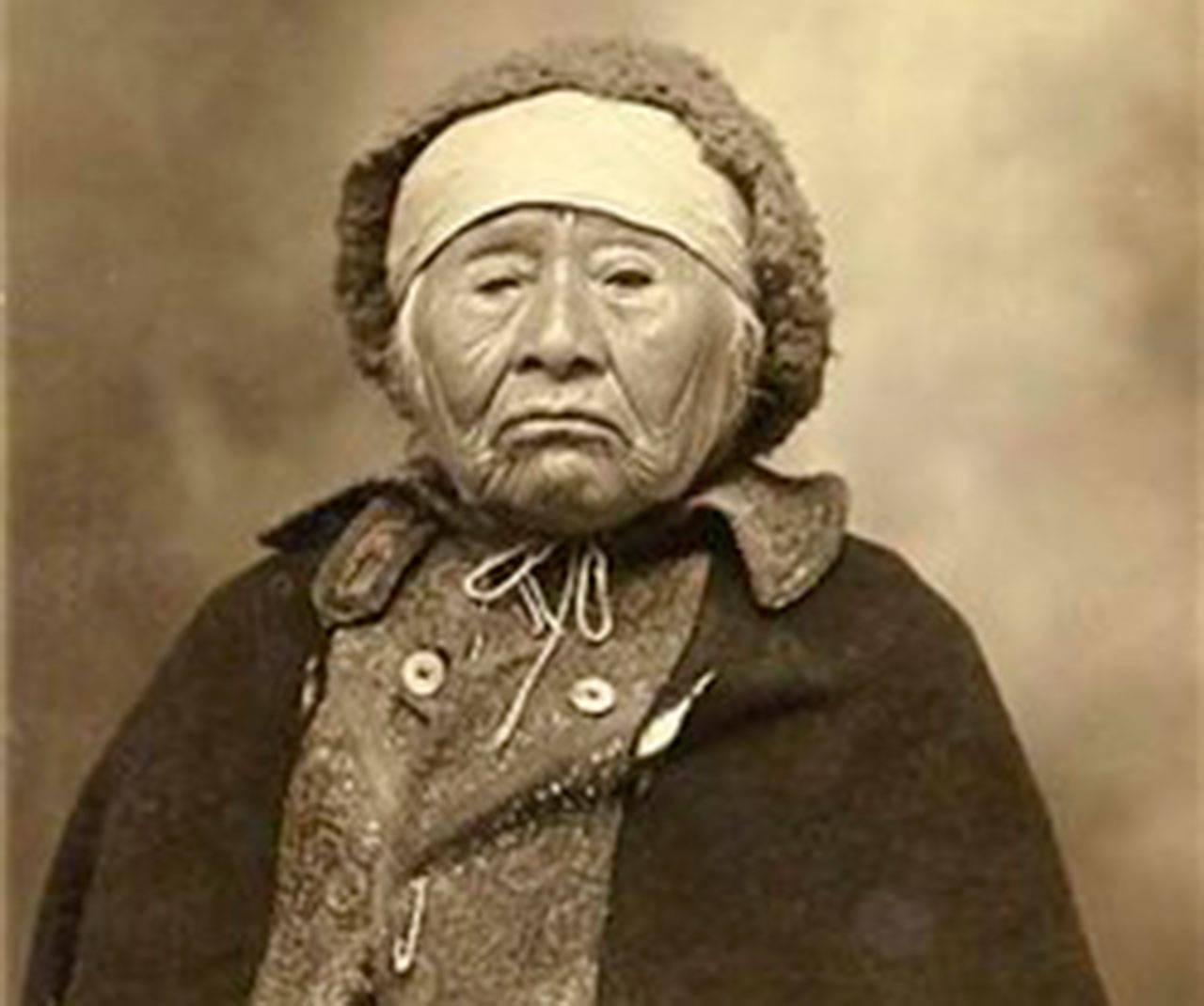By The Herald Editorial Board
While some of us might puzzle over the naming of a royal infant as Archie, another naming effort might be of greater interest to Snohomish County residents.
The Snohomish City Council is scheduled to vote on the naming of a new 20-acre park and boat launch along the Snohomish River at its June 4 meeting, as The Herald’s Stephanie Davey reported Sunday.
The proposal would name the park Julia’s Landing for Pilchuck Julia Jack, a Native American woman said to have been born around the 1840s on land that would a few years later become the Tulalip Tribes reservation. Pilchuck Julia, as she is typically known, lived for many years near the city of Snohomish along the Pilchuck River, making and selling blankets and baskets, selling fish, clams and berries and — with a no-nonsense countenance — posing for photographs. Julia died in her 80s in 1923 of smallpox. She is buried in the city’s G.A.R. Cemetery.
Like much that goes on in Snohomish city government, the effort has taken time and involved its share of frank discussion and disagreement, some if it playing out in letters to the editor published in The Herald. The city has been considering a name since 2017, and following a review of more than 50 names, a committee recommended naming the park for Julia, but not before another suggestion — honoring Marine Cpl. Jeffrey Starr, who died in action in Iraq in 2005 — was considered.
It’s a common problem when naming parks, buildings, streets and other landmarks, but a good problem to have: more than enough worthy names to consider. The Everett City Council itself delayed action last summer on naming a new park to be developed in the Glacier View neighborhood adjacent to the new YMCA facility being built.
Following a public process that generated more than 140 suggestions — including Parky McParkface — the city’s parks commission recommended Art Grossman Memorial Park to the council. Grossman, a retired family doctor who taught fitness classes at the Everett YMCA, coached youth soccer and served on the city’s parks board, died in 2017. Also considered were David Dilgard, the late historian for the Everett Public Library; and Emma Yule, the city’s first teacher and schools superintendent.
The consolation for supporters of those names not selected is that their consideration provides its own honor and a chance to remember that person’s contributions to the community. And, perhaps, an opportunity for the name to be considered at another time for another landmark.
The Snohomish City Council should approve the name Julia’s Landing for its new park.
The research available on Pilchuck Julia’s life is not extensive, but more than sufficient to justify memorializing her name.
Julia is said to have been witness to the signing of the Treaty of Point Elliot in 1855, near what would become Mukilteo, the settlement treaty between the Washington Territory and the tribes of the Puget Sound region that established the Tulalip and other reservations in exchange for accustomed lands. Based on a column she wrote for the Snohomish Advance newspaper, “Pilchuck Julia Says,” her weather predictions, drawn from her observations of the natural world, attracted the attention of Seattle newspapers when predicted a heavy snowstorm in 1916. Five feet of snow fell.
And in 2006, a wooden sculpture of Julia played its part in a protest against the city’s plans to build a senior center on the grounds of the pioneer cemetery where Julia and some 95 others were buried. The sculpture was briefly moved from a Snohomish restaurant to the graveyard, with permission granted after the fact.
Julia’s remains and that of others already had been moved once before in 1947 when the state built U.S. 2.
Rather than move the graves, the city found a different location nearby for the senior center.
The wife of Pilchuck Jack, Julia and her family, are considered by some the last of the Pilchuck Indians, though the Jacks’ descendents live on.
The names we give the landmarks in our communities provide a connection to our shared geography and history. We need that tie to those who came before us, whether they were indigenous or pioneer, long past or more recent.
A riverfront park provides an appropriate way to remember and honor Pilchuck Julia.
Talk to us
> Give us your news tips.
> Send us a letter to the editor.
> More Herald contact information.

























